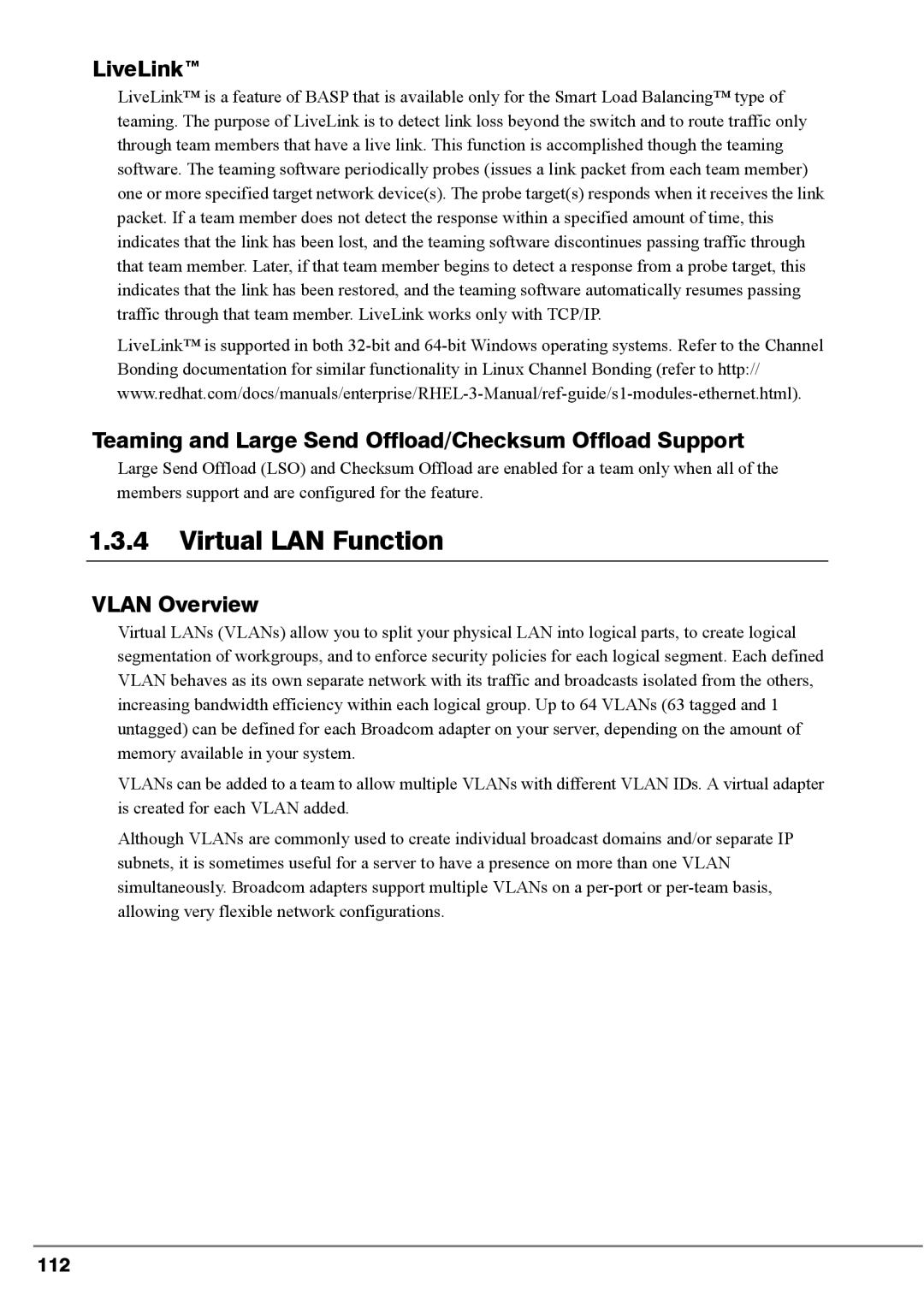
LiveLink™
LiveLink™ is a feature of BASP that is available only for the Smart Load Balancing™ type of teaming. The purpose of LiveLink is to detect link loss beyond the switch and to route traffic only through team members that have a live link. This function is accomplished though the teaming software. The teaming software periodically probes (issues a link packet from each team member) one or more specified target network device(s). The probe target(s) responds when it receives the link packet. If a team member does not detect the response within a specified amount of time, this indicates that the link has been lost, and the teaming software discontinues passing traffic through that team member. Later, if that team member begins to detect a response from a probe target, this indicates that the link has been restored, and the teaming software automatically resumes passing traffic through that team member. LiveLink works only with TCP/IP.
LiveLink™ is supported in both
Teaming and Large Send Offload/Checksum Offload Support
Large Send Offload (LSO) and Checksum Offload are enabled for a team only when all of the members support and are configured for the feature.
1.3.4Virtual LAN Function
VLAN Overview
Virtual LANs (VLANs) allow you to split your physical LAN into logical parts, to create logical segmentation of workgroups, and to enforce security policies for each logical segment. Each defined VLAN behaves as its own separate network with its traffic and broadcasts isolated from the others, increasing bandwidth efficiency within each logical group. Up to 64 VLANs (63 tagged and 1 untagged) can be defined for each Broadcom adapter on your server, depending on the amount of memory available in your system.
VLANs can be added to a team to allow multiple VLANs with different VLAN IDs. A virtual adapter is created for each VLAN added.
Although VLANs are commonly used to create individual broadcast domains and/or separate IP subnets, it is sometimes useful for a server to have a presence on more than one VLAN simultaneously. Broadcom adapters support multiple VLANs on a
